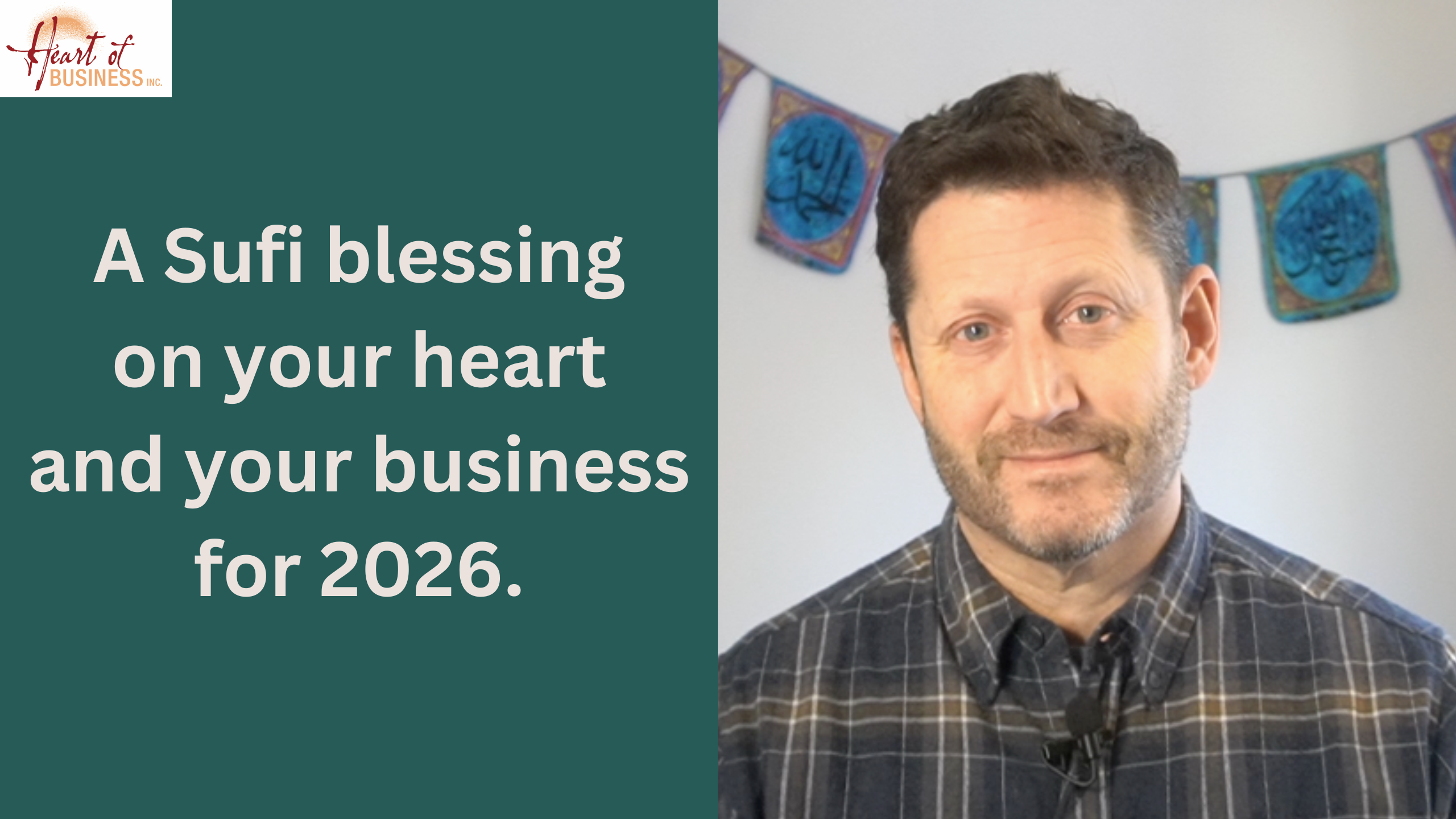 This is a guest post from Kate Swoboda of Your Courageous Life in response to my call for guest posts on the topic Is It Possible to Do Financial Harm to a Client?
This is a guest post from Kate Swoboda of Your Courageous Life in response to my call for guest posts on the topic Is It Possible to Do Financial Harm to a Client?
Kate is a lover of the a-ha moments, ferociously supportive when people feel stuck, and relentlessly committed to the idea that you exist on this earth to live 100% fully alive.
When I heard that Barbara (name and identifying, specific details changed) had decided to start working with a life coach, I inwardly cringed. She was a friend-of-a-friend, and was fired up after spending the weekend at a wealth conference. She was ready, she told me, to finally get her finances in order.
There was just one problem: the coach she had already signed on the dotted line to work with–one of many coaches who collaborated with the workshop sponsors and who was conveniently waiting for people as they were exiting the conference with a “post-workshop high”–had locked Barbara into a coaching agreement that was going to cost thousands upon thousands of dollars.
Even though I’m a coach myself and know the power that I can offer my clients, I also knew that Barbara had no job, very little in savings, and that her retirement had taken a big hit with the down economy.
She wanted to work for herself, and this workshop and this coach were telling her that she could do it.
From what I knew of Barbara, she truly was smart enough and capable enough to do it–but spending a few thousand dollars on a high-priced coach was going to add more financial obstacles, not take them away. The coaches who had asked her to sign on the dotted line without knowing much about her other than that she had the ever-ubiquitous desire for wealth were seriously lacking in integrity.
Emotional & Financial Integrity
One of the reasons that coaching gets a bad rap is because coaches are running into the very challenge that Mark is meeting at Heart of Business: how do you do your heart-centered work, while also navigating in the world of business and money?
Even more importantly–how do we ensure that we’re truly supporting the Barbaras of the world, and not adding more to their plates?
While many life coaches are clear on what it means to practice integrity on an emotional level with their clients, they might not be as clear as to what it means to practice financial integrity.
Who’s Responsible?
Our clients are responsible for their lives, financial and otherwise–without question. Barbara is making all of her own choices. Nonetheless, in the same way that coaches have ethical considerations related to emotional integrity–like making sure that our clients aren’t putting us in the role of “guru”–we also have ethical considerations related to financial integrity–such as risking asking our clients tough questions about whether or not paying for coaching will really support them in leading more easeful lives.
Here are four steps coaches can take towards creating a financially ethical relationship with clients:
1. Require all clients to complete a pre-session intake sheet, and ask clients directly about the state of their finances.
While exact numbers aren’t necessary, getting a picture of someone’s finances is like getting a snapshot of where they might hesitate around accountability, what their resistance looks like, or where they might use external rewards as “treats” that are not really fulfilling.
2. If a client shares with you that they are in the middle of a financial challenge–divorce, bankruptcy, etc.–strongly reconsider whether or not they should be working with you right now.
Be willing to be open about that conversation.
Since it can be an awkward conversation to have, it’s one that I’ve usually elected to have after letting a client have an initial one-off introductory session with me, for two reasons. One is that I don’t think anyone appreciates revealing their financial struggles and then immediately having someone say, “Oh, well, sorry–can’t work with you. End call.” Two is that during that one-off session I can offer some practices to undertake for the next few months, while they get back on solid ground, at which point they would be welcome to revisit talking to me.
3. If a client in the midst of a financial challenge tells you that they’re really, really sure that coaching is what they need, make financial integrity part of the work.
I’ve personally worked with people who came to coaching when they were in a lot of debt. We worked on getting out of debt as if they were searching for water because their hair was on fire. Don’t work with people who are dealing with financial problems unless they are highly motivated to change–better yet, don’t work with anyone on anything unless they are highly motivated to change. Then no one walks away from the table feeling resentful.
4. Don’t say yes to every opportunity that comes your way–such as the opportunity to promote someone else’s product, be a coach at a conference that pushes people to sign up with you afterwards, or be the resident life coach on a television show.
This is the hook for most new and emerging life coaches. You can go so long without seeing movement that the first time someone says, “You’re invited to become an affiliate!” you’ll bite–even if the product you’d push lacks integrity. Conferences (not all, but certainly some!) can be predatory and it’s good to do some background checking before you align your name with them. I’ve read stories of life coaches on reality TV shows being asked by producers to change their coaching so as not to affect the arc of the “story.”
These are just a few basics as you’re getting started. I would love to hear added suggestions from other coaches: How do you practice financial integrity when you’re working with a new client?
Kate Swoboda is a life coach, speaker and writer. Find out more at http://www.yourcourageousblueprint.com.







7 Responses
I’ve seen first hand how these big ticket programs can have life altering effects – both for the better and the worse. A very good friend of mine went to a workshop with an up-sell at the end of it. She applied for the big-ticket program and on her application very specifically wrote these words: “I really want to do this, but i have no income and no idea how I can afford to make this happen.”
The coach signed her up without even reviewing the application – either that, or the coach just didn’t care. They spent months working together and the struggle and guilt my friend felt was downright mortifying to me. She was constantly focused on finding a way to “payoff” the investment. And in her defense, she did ask several times to get out of the coaching contract (even within a few days of signing up), and the coach reassured her that everything would work itself out, and that they’d find a way to make the coaching contract work out.
She did manage to complete the year long contract with her coach, but the damage was done: her business was in far worse financial shape at the end of the program than at the beginning. Granted, she didn’t take on any debt to make the program happen, but she also didn’t have any financial “breathing room” to make smart decisions for hew biz or her life.
We still talk about the choices that both she and that coach made. She accepts her part in not speaking up for herself, but at the same time, it smacks of a James Ray situation: here’s the “guru” telling you to “man up” and endure the hardship for maximum growth. Trusting your own voice can be challenging to someone very vulnerable. We have a responsibility to ourselves to honor our inner knowing – even if it seems counter intuitive – and that’s something this segment of the coaching industry has tried to train out of us.
I crack jokes about “the lineage” – this group of internet marketers that have been trickling down their economic theories for years now – and how it’s taking a toll on the coaching industry. It’s gotten to the point where bona fide coaches are hesitant to call themselves such because of the stigma these exploitative folks have put on the industry.
We need to reclaim our responsibility to and for our clients, as well as ourselves.
Wow, that coach really screwed over your friend Barbara, but honestly she should have been smart enough not to spend thousands of dollars that she didn’t have to be spending. I feel like the coach shouldn’t have screwed her over ethically, but the overall responsibility falls on her for being so stupid with her money. At the same time, her being stupid with money may be the reason she needs the Life Coach.
Great writing Kate, thank you for adding your voice to this topic. It’s one I’ve discussed with Jen Louden, Michelle Lisenbury and Tara Mohr and an area that demands clarity, courage and integrity from us all.
You bring up an important conversation one that I feel strongly about. A number of years ago I signed up with one of those multiple thousand coaches. I had a large income so I could certainly bear the cost. Problem is, that particular coach was absolutely terrible. And I wasn’t ready. I was in, what Mark calls stage one. I was still learning what I had to do, sorting out who I was and what market I wanted to be involved in.
It was my responsibility – and my fault – that I signed up for something that wasn’t worth it. It was my responsbibility that I wasn’t ready for that level of investment as I hadn’t done the groundwork to get me to that place where I could harness that level of investment.
Through my work with this person it became clear to me that the coach has enrolled me and all the others in serve of meeting financial goals, not to help me shift in any way.
Quick money does not bring in long lasting success. That particular coach has gone through some pretty messy things. The emporer was discovered without clothes.
A month or so ago I met with someone who really wanted help, really wanted to get somewhere but she hadn’t done the groundwork and wasn’t really sure where she wanted to go. Plus she was in a financial pinch. When I told her my price which was quite reasonable she was ready to sign. Somehow, though, in my belly it didn’t feel good or right. Instead of getting her to sign I told her to think about it and see if it was right for her.
I’m glad I did. She emailed me and said she wasn’t ready. I blessed her and told her I would be there when she was ready.
That felt right. Feels right still.
The world I belong to and want to embrace further is a world in which there is enough. My world is one where being true to myself and looking out for the best for myself and the other will benefit all of us. When I’m guided by love then the world unfolds in a way that is much more satisfactory. The lovely side benefit is that the money is there without pushing and especially without feeling sick to my stomach.
I love this, Deirdre. Really beautiful.
Deirdre,
I love your point about finding a way forward that doesn’t make you, or your clients feel sick to your stomach. Any investment that leaves us in constant stress, fearing for our survival, and pushing beyond the limits of kindness is probably not a great investment.
I think the problem is less that a coach is or isn’t terrible, but that many people offering high-end programs haven’t really named or claimed what they are brilliant at or who they can really help (or what they aren’t so good at). They sell the dream of what could happen if you work with them, and leave vague exactly what they will do that will allow that dream to be fulfilled.
If the program you’re describing is the one I think it is, I would say the coach in question was gifted at presenting people with a much bigger vision of who they could be in the world, brainstorming revenue ideas, and inspiring people to believe they could have more, but not so strong at helping folks get started in their business or map out the foundation they needed to put in place to make those great ideas a reality.
I also think it’s really hard to know someone else’s heart, or know for sure if any coach truly wants to help people shift or is just chasing the dollars. In the face of big numbers, most human beings are vulnerable to some confusion about their own desire and motivation.
I myself have had moments of falling into the trap of believing that I can help almost anyone, and it took a few rough bumps and a lot of soul searching to realize that despite my best intentions, and desire to see people breakthrough, it’s safer and kinder to myself to pay more attention to the clues that tell me if someone can really meet me halfway.
And it’s scary for me to come out and say — I’m really not the best person if you are brand new in business, or I’m not clear if your capacity for action matches your ambition. Or, I’ll be more useful to you once you master this other stuff first.
And Deirdre, I love your big heart and your willingess to speak openly about your difficult experiences. You always have been this shining light to show people that beauty can come out of pain and loss.
Kate, I love your integrity in all that you do…thank you for this reminder.